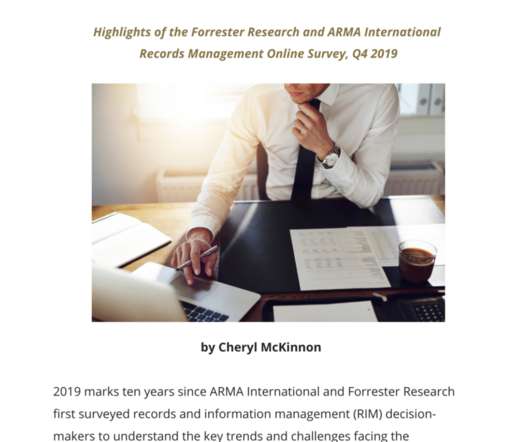Cloud, Intelligent Content Services, and Digital Fragility: What’s on the RIM Horizon for 2020
ARMA International
DECEMBER 26, 2019
Nineteen percent of RIM programs report into IT (up from 15% in 2017), and 28% into legal (up from 18.5% in 2017), with the remainder reporting into senior administrative roles, compliance, corporate services, or finance teams. In 2017, only 25% of respondents reported they had re-organized their programs.














Let's personalize your content